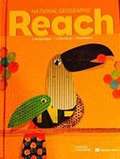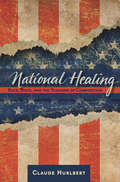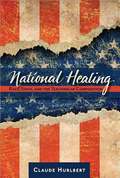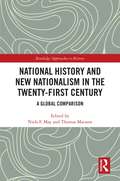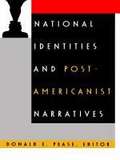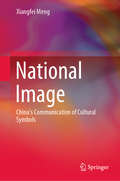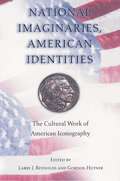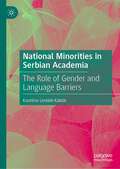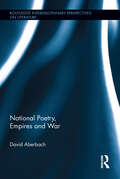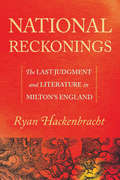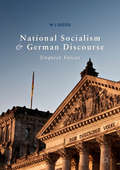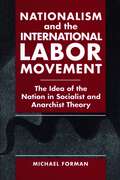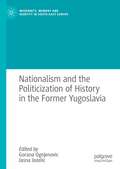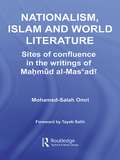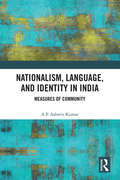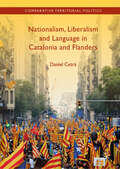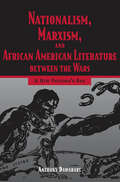- Table View
- List View
National Geographic Reach: Languange, Literacy, Content
by Nancy Frey Lada Kratky Nonie K. LesauxNIMAC-sourced textbook
National Geographic Reach: Language, Literacy, Content [Level D, Grade 3]
by Nancy Frey Lada Kratky Nonie K. LesauxNIMAC-sourced textbook
National Geographic Reach: Language, Literacy, Content [Level F, Grade 5]
by Nancy Frey Lada Kratky Nonie K. LesauxReach Lvl F TX Student Anthology
National Geographic Reach: Language, Literacy, Content [Level E, Grade 4]
by Nancy Frey Lada Kratky Nonie K. LesauxReach Lvl E TX Student Anthology
National Geographic Reach: Language, Literacy, Content
by Nancy Frey Lada Kratky Nonie K. Lesaux Sylvia Linan-Thompson Deborah J. Short Jennifer D. TurnerNational Geographic Reach: Student Anthology, Level E
by Lada KratkyThe Student Anthology features paired reading selections with exclusive National Geographic content. Built-in instructional support and activities are also included.
National Geographic Reach for Reading: Language, Literacy, Content (Grade #4)
by Nancy Frey Lada Kratky Nonie K. LesauxNational Geographic Reach: Language, Literacy, Content [Grade 2]
by Nancy Frey Lada Kratky Nonie LesauxNIMAC-sourced textbook
National Healing: Race, State, and the Teaching of Composition (G - Reference, Information And Interdisciplinary Subjects Ser.)
by Claude HurlbertIn National Healing, author Claude Hurlbert persuasively relates nationalism to institutional racism and contends that these are both symptoms of a national ill health afflicting American higher education and found even in the field of writing studies. Teachers and scholars, even in progressive fields like composition, are unwittingly at odds with their own most liberatory purposes, he says, and he advocates consciously broadening our understanding of rhetoric and writing instruction to include rhetorical traditions of non-Western cultures. Threading a personal narrative of his own experiences as a student, professor, and citizen through a wide ranging discussion of theory, pedagogy, and philosophy in the writing classroom, Hurlbert weaves a vision that moves beyond simple polemic and simplistic multiculturalism. National Healing offers a compelling new aesthetic, epistemological, and rhetorical configuration.
National Healing
by Claude HurlbertIn National Healing, author Claude Hurlbert persuasively relates nationalism to institutional racism and contends that these are both symptoms of a national ill health afflicting American higher education and found even in the field of writing studies. Teachers and scholars, even in progressive fields like composition, are unwittingly at odds with their own most liberatory purposes, he says, and he advocates consciously broadening our understanding of rhetoric and writing instruction to include rhetorical traditions of non-Western cultures.Threading a personal narrative of his own experiences as a student, professor, and citizen through a wide ranging discussion of theory, pedagogy, and philosophy in the writing classroom, Hurlbert weaves a vision that moves beyond simple polemic and simplistic multiculturalism. National Healing offers a compelling new aesthetic, epistemological, and rhetorical configuration.
National History and New Nationalism in the Twenty-First Century: A Global Comparison (Routledge Approaches to History #44)
by Niels F. May Thomas MaissenNational history has once again become a battlefield. In internal political conflicts, which are fought on the terrain of popular culture, museums, schoolbooks, and memorial politics, it has taken on a newly important and contested role. Irrespective of national specifics, the narratives of new nationalism are quite similar everywhere. National history is said to stretch back many centuries, expressesing the historical continuity of a homogeneous people and its timeless character. This people struggles for independence, guided by towering leaders and inspired by the sacrifice of martyrs. Unlike earlier forms of nationalism, the main enemies are no longer neighbouring states, but international and supranational institutions. To use national history as an integrative tool, new nationalists claim that the media and school history curricula should not contest or question the nation and its great historical deeds, as doubts threaten to weaken and dishonour the nation. This book offers a broad international overview of the rhetoric, contents, and contexts of the rise of these renewed national historical narratives, and of how professional historians have reacted to these phenomena. The contributions focus on a wide range of representative nations from around all over the globe.
National Identities and Post-Americanist Narratives
by Donald E. PeaseNational narratives create imaginary relations within imagined communities called national peoples. But in the American narrative, alongside the nexus of belonging established for the national community, the national narrative has represented other peoples (women, blacks, "foreigners", the homeless) from whom the property of nationness has been removed altogether and upon whose differences from them the national people depended for the construction of their norms. Dismantling this opposition has become the task of post-national (Post-Americanist) narratives, bent on changing the assumptions that found the "national identity."This volume, originally published as a special issue of bounrary 2, focuses on the process of assembling and dismantling the American national narrative(s), sketching its inception and demolition. The contributors examine various cultural, political, and historical sources--colonial literature, mass movements, epidemics of disease, mass spectacle, transnational corporations, super-weapons, popular magazines, literary texts--out of which this narrative was constructed, and propose different understandings of nationality and identity following in its wake.Contributors. Jonathan Arac, Lauren Berlant, Robert J. Corber, Elizabeth Freeman, Kathryn V. Lingberg, Jack Matthews, Alan Nadel, Patrick O'Donnell, Daniel O'Hara, Donald E. Pease, Ross Posnock, John Carlos Rowe, Rob Wilson
National Image: China’s Communication of Cultural Symbols
by Xiangfei MengThis book introduces researchers, students and the general public to an intriguing phenomenon at the intersection of diverse fields: national branding. In particular, it uses representative cases particularly to show how China responded to major challenges, not only in the distant past, but also especially in our hectic age of national image construction. By pursuing an interdisciplinary, socio-historical approach, the book sheds new light on the role of cultural symbols in national image building. As such, readers will learn how China has exploited its “black-and-white” tradition – calligraphy and painting – in the construction of a national image.
National Imaginaries, American Identities: The Cultural Work of American Iconography
by Larry J. Reynolds & Gordon HutnerFrom the American Revolution to the present, the United States has enjoyed a rich and persuasive visual culture. These images have constructed, sustained, and disseminated social values and identities, but this unwieldy, sometimes untidy form of cultural expression has received less systematic attention than other modes of depicting American life. Recently, scholars in the humanities have developed a new critical approach to reading images and the cultural work they perform. This practice, American cultural iconography, is generating sophisticated analyses of how images organize our public life. The contributions to this volume exhibit the extraordinary scope and interpretive power of this interdisciplinary study while illuminating the dark corners of the nation's psyche. Drawing on such varied texts and visual media as daguerreotypes, political cartoons, tourist posters, and religious artifacts, these essays explore how pictures and words combine to teach us who we are and who we are not. They examine mimesis in elegant portraits of black Freemasons, industrial-age representations of national parks, and postwar photographs of atomic destruction. They consider how visual culture has described and disclosed the politics of racialized sexuality, whether subconsciously affirming it in the shadows of film noir or deliberately contesting it through the interethnic incest of John Sayles's Lone Star. Students of literature, film, and history will find that these essays extend the frontier of American studies. The contributors are Maurice Wallace, Dennis Berthold, Alan Trachtenberg, Shirley Samuels, Jenny Franchot, Cecelia Tichi, Eric Lott, Bryan C. Taylor, and José E. Limón.
National Minorities in Serbian Academia: The Role of Gender and Language Barriers
by Karolina Lendák-KabókThis book offers an intersectional analysis of secondary and tertiary educational pathways of ethnic Hungarians, Romanians and Slovaks in the Autonomous Province of Vojvodina, Serbia. After a detailed overview of the legal and institutional context of national minority education in Serbia, the book presents qualitative and quantitative research results to illuminate the often invisible linguistic and cultural barriers that national minority high school graduates, university students and faculty may encounter. The author also focuses on the position of national minority women in Serbian higher education and academia, shedding light on the very gendered nature of the ‘glass ceiling’ that often holds members of national minority communities back from career building. This book will be of interest to policymakers seeking nuanced interpretations of multifocal inequalities, as well as academics in fields such as gender studies, migration studies, minority languages and communities, and the sociology of education.
National Poetry, Empires and War (Routledge Interdisciplinary Perspectives on Literature)
by David AberbachNationalism has given the world a genre of poetry bright with ideals of justice, freedom and the brotherhood of man, but also, at times, burning with humiliation and grievance, hatred and lust for revenge, driving human kind, as the Austrian poet Grillparzer put it, ‘From humanity via nationality to bestiality’. National Poetry, Empires and War considers national poetry, and its glorification of war, from ancient to modern times, in a series of historical, social and political perspectives. Starting with the Hebrew Bible and Homer and moving through the Crusades and examples of subsequent empires, this book has much on pre-modern national poetry but focuses chiefly on post-1789 poetry which emerged from the weakening and collapse of empires, as the idealistic liberalism of nationalism in the age of Byron, Whitman, D’Annunzio, Yeats, Bialik, and Kipling was replaced by darker purposes culminating in World War I and the rise of fascism. Many national poets are the subject of countless critical and biographical studies, but this book aims to give a panoramic view of national poetry as a whole. It will be of great interest to any scholars of nationalism, Jewish Studies, history, comparative literature, and general cultural studies.
National Reckonings: The Last Judgment and Literature in Milton’s England
by Ryan HackenbrachtDuring the tumultuous years of the English Revolution and Restoration, national crises like civil wars and the execution of the king convinced Englishmen that the end of the world was not only inevitable but imminent. National Reckonings shows how this widespread eschatological expectation shaped nationalist thinking in the seventeenth century. Imagining what Christ's return would mean for England's body politic, a wide range of poets, philosophers, and other writers—including Milton, Hobbes, Winstanley, and Thomas and Henry Vaughan,—used anticipation of the Last Judgment to both disrupt existing ideas of the nation and generate new ones. Ryan Hackenbracht contends that nationalism, consequently, was not merely a horizontal relationship between citizens and their sovereign but a vertical one that pitted the nation against the shortly expected kingdom of God. The Last Judgment was the site at which these two imagined communities, England and ecclesia (the universal church), would collide. Harnessing the imaginative space afforded by literature, writers measured the shortcomings of an imperfect and finite nation against the divine standard of a perfect and universal community. In writing the nation into end-times prophecies, such works as Paradise Lost and Leviathan offered contemporary readers an opportunity to participate in the cosmic drama of the world's end and experience reckoning while there was still time to alter its outcome.
National Socialism and German Discourse: Unquiet Voices
by W J DoddIn this discourse history, W J Dodd analyses the ‘unquiet voices’ of opponents whose contemporary critiques of Nazism, from positions of territorial and inner exile, focused on the ‘language of Nazism’. Individual chapters review ‘precursor’ discourses; Nazi public discourse from 1933 to 1945; the testimonies of ‘unquiet voices’ abroad, and in private and published texts in the ‘Reich’; attempts to ‘denazify the language’ (1945-49), and the legacies of the Nazi past in a retrospective discourse of ‘coming to terms’ with the Nazi past. In the period from 1945, the book focuses on contestations of ‘tainted language’ and instrumentalizations of the Nazi past, and the persistence of linguistic taboos in contemporary German usage. Highly engaging, with English translations provided throughout, this book will provide an invaluable resource for scholars of discourse analysis, sociolinguistics, and German history and culture; as well as readers with a general interest in language and politics.
Nationalism and the International Labor Movement: The Idea of the Nation in Socialist and Anarchist Theory (G - Reference, Information and Interdisciplinary Subjects)
by Michael FormanThe resurgence of nationalism accompanying the decline of Communism has been taken to indicate the failure of socialist theory to grasp the nature of this phenomenon. Against both those who argue that the radical tradition has ignored and underestimated nationalism and those who accuse it of economic reductionism, this careful analysis of the idea of the nation as it was developed in the work of the major thinkers of the international labor movement reveals evidence of how seriously they grappled with nationalism.Each of the main sections of the book focuses on the most influential theorists of the international labor movement as it became organized and grew: Bakunin, Marx, and Engels and the concern of the First International (1864–1876) with class solidarity across political borders; Lenin, Luxemburg, and Bauer and the preoccupation of the Second International (1889-1914) with socialism in ethnically plural societies; Stalin and Gramsci in relation to the substitution by the Third International (1919–1943) of nation-building and national liberation for the old class project.In the conclusion, the author examines the relationships among ethnic and civic nationality, national self-determination, republican institutions, and the process of globalization from the perspective of the post-Soviet era and in the light of social theory and Kant's ideas about cosmopolitan right.
Nationalism and the Politicization of History in the Former Yugoslavia (Modernity, Memory and Identity in South-East Europe)
by Gorana Ognjenovic Jasna Jozelic“This book is very timely: the instrumentalization of history for political goals has become a pressing issue and worrisome feature of many polities, to the point of challenging even the most consolidated democracies. Focusing on Yugoslavia’s fragile successor states, the authors explore plurifold analytical levels, including local, regional, transnational, European and global perspectives. The authors comprehensively demonstrate how politicizing history, in the postwar and postcommunist societies of what was once Yugoslavia, has prevented both reconciliation and democratization.”—Sabine Rutar, Leibniz Institute for East and Southeast European Studies, Germany“Ognjenovic and Jozelic focus here on the former Yugoslavia before and after its fragmentation to explore and evaluate the various uses of histories by nationalists, both those who promoted ‘federal nationalism’ and those who peddle specific local nationalisms in successor states. The book deals specifically with the Western Balkans, but these developments have their parallels in many other parts of the world, and the book will be useful well beyond the region on which the study is based.”—Paul Mojzes, Professor Emeritus, Rosemont College, USA“The former Yugoslavia has become a battlefield for the ‘Memory Wars’, in spite of the wealth of judicially established facts and available evidences gathered about the atrocities in the region, and various initiatives aimed at dealing with the past and efforts at transitional justice. Focusing on three periods of Yugoslav history – the Second World War, socialist Yugoslavia and the Yugoslav wars of 1991–2001 – the contributors show that despite these efforts to deal with the past, sustainable peace and reconciliation across ethnic and religious groups remain a distant aim.” —Marijana Toma, Center for Cultural Decontamination, SerbiaThis book analyzes how nationalists in the former Yugoslavia have politicized history to further their political agendas, retaining and prolonging conflict among different cultural and religious groups, and impeding the process of lasting reconciliation. It explores how narratives have been (mis)used, drawing on examples from all of the former Yugoslav republics. With contributors from a range of disciplinary backgrounds, it provides a vital assessment of how nationalists have attempted to (re)shape public collective memory and relativize facts.
Nationalism, Islam and World Literature: Sites of Confluence in the Writings of Mahmud Al-Mas’adi (Routledge Studies in Middle Eastern Literatures)
by Mohamed-Salah OmriThe writer and politician Mahmud al-Mis’adi is a figure of prime importance in the development of North African literature and cultural politics since the last war. This fascinating book covers both his essays and fiction, written between the 1930s and 1990s, which challenge the boundaries between the sacred and irreligious in the Islamic world. In addition, it also examines Arabic literature and its relationship to the West.
Nationalism, Language and Identity in India: Measures of Community
by A P KumarThis book examines linguistic nationalism in India. It focuses on the emergence of language as a marker of identity by analysing themes such as Linguistic Reorganization of States, nationalism, philology, and linguistic identity. Formulating a novel conception of doxastic nature of community experience, the author presents a theory about nationalism as a cultural phenomenon by studying the constraints of western theological apparatuses that limit our understanding of it. The book looks at how an ecclesiastical notion of community is at the heart of the debate around linguistic and national identity – something that is redefining politics the world over. This volume will be useful for scholars and researchers of political studies, political sociology, sociology, historical linguistics and cultural studies.
Nationalism, Liberalism and Language in Catalonia and Flanders (Comparative Territorial Politics)
by Daniel CetràIs liberalism really compatible with nationalism? Are there limits to linguistic nation-building policies? What arguments justify the imposition of national languages? This book addresses these questions by examining the linguistic disputes in Catalonia and Flanders, two major cases of sub-state nationalism. The book connects two strands of arguments: the political arguments around contested linguistic policies, drawing on a rich set of primary and secondary sources, and the theoretical arguments around liberalism and nationalism. The study also compares the historical trajectory and political dynamics of Catalan and Flemish nationalism. It shows that the relationship between language and nationhood is politically constructed through state nation-building and minority activism. The findings highlight the relevance and pervasiveness of nationalism in contemporary social and political life. This book will appeal to scholars and upper-level students interested in nationalism, contemporary political theory, the politics of language, and comparative territorial politics.
Nationalism, Marxism, and African American Literature between the Wars: A New Pandora's Box
by Anthony DawahareDuring and after the Harlem Renaissance, two intellectual forces—nationalism and Marxism—clashed and changed the future of African American writing. Current literary thinking says that writers with nationalist leanings wrote the most relevant fiction, poetry, and prose of the day. Nationalism, Marxism, and African American Literature Between the Wars: A New Pandora's Box challenges that notion. It boldly proposes that such writers as A. Philip Randolph, Langston Hughes, and Richard Wright, who often saw the world in terms of class struggle, did more to advance the anti-racist politics of African American letters than writers such as Countee Cullen, Jessie Redmon Fauset, Alain Locke, and Marcus Garvey, who remained enmeshed in nationalist and racialist discourse. Evaluating the great impact of Marxism and nationalism on black authors from the Harlem Renaissance and the Depression era, Anthony Dawahare argues that the spread of nationalist ideologies and movements between the world wars did guide legitimate political desires of black writers for a world without racism. But the nationalist channels of political and cultural resistance did not address the capitalist foundation of modern racial discrimination. During the period known as the “Red Decade” (1929–1941), black writers developed some of the sharpest critiques of the capitalist world and thus anticipated contemporary scholarship on the intellectual and political hazards of nationalism for the working class. As it examines the progression of the Great Depression, the book focuses on the shift of black writers to the Communist Left, including analyses of the Communists' position on the “Negro Question,” the radical poetry of Langston Hughes, and the writings of Richard Wright.

